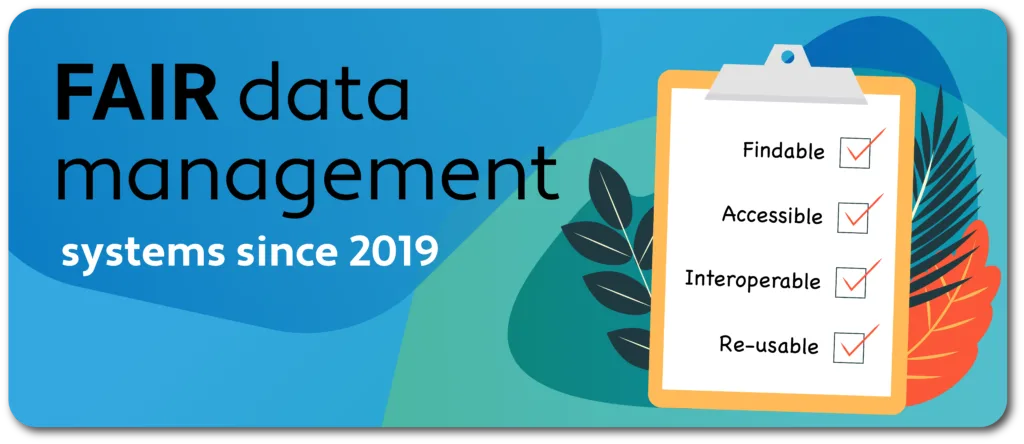
Findable, Accessible, Interoperable, Re-usable
The FAIR principles are now an established basis for handling research data. Data should be findable, accessible, interoperable and re-usable. The DFG guidelines for safeguarding good scientific practice and other funding guidelines also refer to the FAIR principles.
Practical implementation of the FAIR principles in LinkAhead
Although the FAIR principles are widely recognized in the scientific community, their practical implementation often remains a challenge. This is precisely where LinkAhead comes in and enables data management that successfully implements the FAIR principles in practice.
Findable
In order for data to be used sustainably, it must be findable by both people and machines. In LinkAhead, data is precisely described using unique metadata. Additionally, PIDs can also be used for unique identification. Established standards such as DataCite or Schema.org can be used or metadata can be flexibly customised. Thanks to the intuitive search language, the recorded data can also be searched extensively. Filter options and templates for recurring search queries also make it easier to find data manually.
Accessible
With LinkAhead, users retain complete control over their data. The system does not move any data, but leaves it in its original storage location. Thanks to the integrated rights management, sensitive data can be effectively protected while maintaining accessibility to metadata if desired. LinkAhead uses open, standardised protocols to access data and metadata, with libraries available under the free AGPL licence.
Interoperable
LinkAhead enables the interoperability of data by integrating or referencing information from different sources. It connects data acquisition systems (e.g. electronic laboratory notebooks or survey systems) with software for analysis, evaluation and publication (e.g. repositories). LinkAhead can support the use of standardised vocabularies and ontologies to improve the reusability of data.
Reusable
Thanks to its flexible data model, LinkAhead is specifically designed to easily adapt to new research questions. LinkAhead also takes into account the meaning and context of data relationships (origin, links, uses). This enables precise references to other (meta) data and thus facilitates the reusability of the data.
To make changes to metadata traceable and transparent, LinkAhead offers versioning of metadata entries. This means that all adjustments can be documented, errors can be corrected and previous versions can be restored if necessary. This ensures long-term use of the data, as researchers can rely on the quality and consistency of the data.
